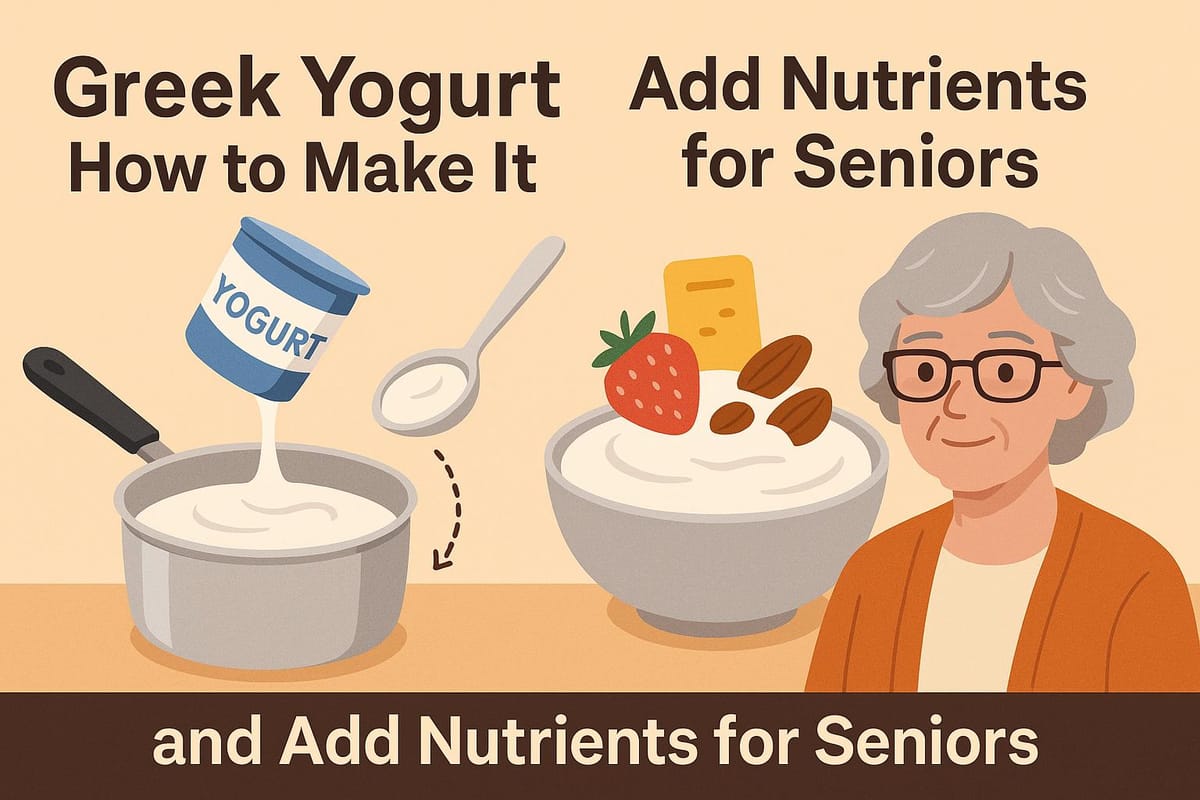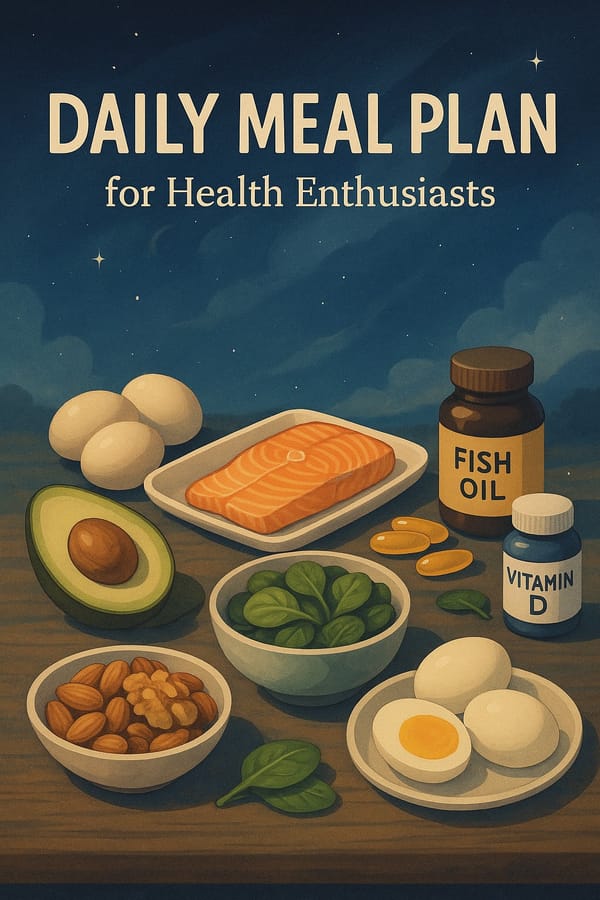How to Make Greek Yogurt and Fortify It with Nutrients for Seniors
Learn how to make Greek yogurt at home and boost its nutritional value to support senior health. A simple guide for better wellness every day.

Introduction Greek yogurt is a highly nutritious food, especially beneficial for seniors. It’s high in protein, which helps maintain muscle mass, and rich in probiotics that support digestive health. In this article, we’ll walk you through how to make homemade Greek yogurt and enhance it with nutrients suitable for the needs of older adults.
Easy Homemade Greek Yogurt Recipe
Ingredients:
- 1 liter of pasteurized fresh milk (low-fat milk can be used if desired)
- 2 tablespoons of plain yogurt with live cultures
Equipment:
- Pot or double boiler
- Cheesecloth or fine strainer
- Strainer and bowl
- Glass jars for storage
Instructions:
- Heat the milk in a pot to about 80°C (do not boil).
- Turn off the heat and allow the milk to cool to about 43°C.
- Add the plain yogurt and stir until well mixed.
- Pour the mixture into a container, cover, and keep in a warm place for 6–8 hours.
- Once the yogurt sets, strain it using cheesecloth placed over a strainer and bowl. Refrigerate for 3–6 hours to separate the whey.
- You’ll be left with thick, creamy Greek yogurt, ready to enjoy.
Choosing the Right Yogurt Starter Culture
Choosing or even creating your own starter culture directly affects the yogurt’s flavor, texture, and probiotic content.
Tips for selecting a good starter:
- Choose plain yogurt labeled “Live & Active Cultures.”
- Make sure it contains no sugar or artificial flavoring like vanilla.
- Opt for trusted brands (e.g., Meiji, Dutchie, Bulgarian yogurt, or organic brands).
- Use fresh yogurt—avoid products older than 1–2 weeks.
- You can also use powdered yogurt starter from baking supply stores or online.
- Store leftover starter in the freezer for 1–2 months and reuse homemade yogurt as a starter for up to 3–4 generations.
Can you make your own starter culture? Yes! Simply save a few tablespoons of your freshly made yogurt and refrigerate it for up to 5–7 days to use as the next batch’s starter. However, it’s best to refresh with a new starter every 3–4 cycles to maintain microbial strength and variety.
Adding Nutrients to Support Senior Health
- Calcium Boost – Mix in ground sesame seeds or calcium-rich milk powder.
- Extra Protein – Add easily soluble plant protein or whey protein powder.
- Healthy Fats – Include crushed almonds, flaxseeds, or walnuts.
- Fiber and Antioxidants – Sprinkle with dried or fresh fruits like blueberries, bananas, or raisins.
- Probiotics – Use starter cultures with diverse strains like Lactobacillus acidophilus and Bifidobacterium lactis.
- Low Sugar – Avoid added sugars by using a small amount of honey or sweetening with fruit.
Is the Separated Whey Useful?
Though it may appear like plain liquid, whey contains several beneficial nutrients:
- Whey Protein – A high-quality, fast-digesting protein that supports muscle maintenance.
- B Vitamins – Especially B2 (riboflavin) and B12, essential for energy production and nerve health.
- Minerals – Includes calcium, magnesium, phosphorus, and potassium.
- Lactose – A natural milk sugar (note for those who are lactose intolerant).
- Probiotics – May contain trace amounts if the original yogurt was rich in live cultures.
How to use whey:
- Drink it as a natural protein beverage
- Mix into smoothies or juices
- Use for marinating meat or pickling vegetables
- Water your plants with it as it’s rich in minerals
Tips for Seniors Consuming Greek Yogurt
- Enjoy as a snack or breakfast to boost energy and nutrition
- If digestive issues occur, opt for longer-fermented yogurt for easier digestion
- For those allergic to cow’s milk, try goat’s milk or fortified plant-based alternatives like soy milk
Conclusion Making Greek yogurt at home is cost-effective and gives you control over its quality. You can tailor its nutrition to suit the unique needs of seniors—supporting muscle, digestive, and immune health. With thoughtful ingredients and proper preparation, Greek yogurt can be a versatile and health-boosting addition to a senior’s diet.



